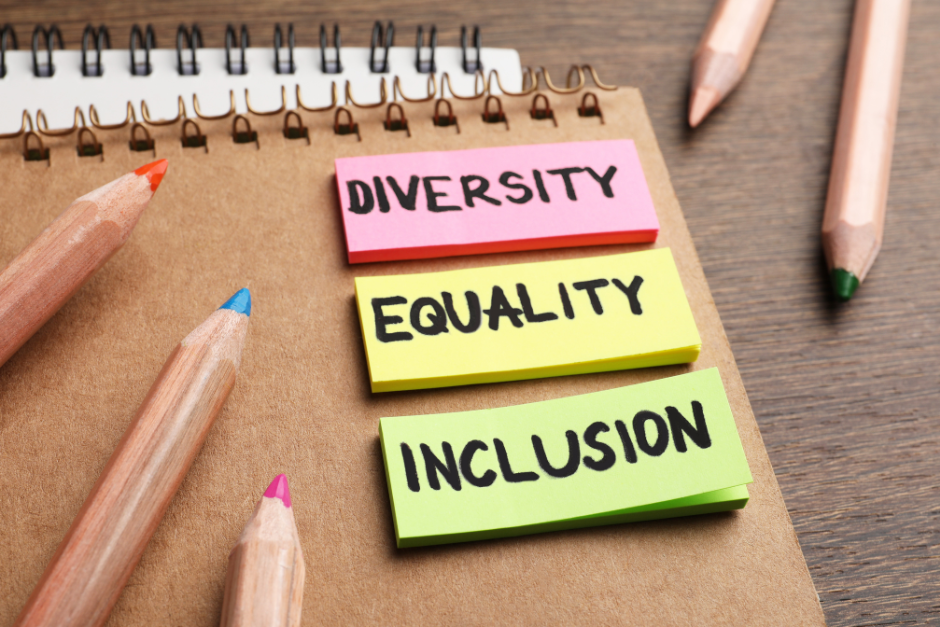Creating a working environment that embraces diversity, equality and inclusion is crucial for a positive environment where all individuals feel valued, respected and empowered. These principles not only contribute to a harmonious workplace culture, but also significantly impact the overall success of an organisation.
Diversity
Diversity covers differences in race, ethnicity, gender, sexual orientation, age, physical abilities, religious beliefs, socio-economic backgrounds and more. Embracing diversity means recognising and appreciating these differences rather than merely tolerating them. A diverse workforce brings together a variety of perspectives, experiences and talents, which can lead to enhanced creativity, problem-solving and decision-making amongst staff.
Equality
However, diversity alone is insufficient without ensuring equality. Equality in the workplace involves treating all individuals fairly and providing equal opportunities for growth, advancement and development regardless of their backgrounds. This means implementing policies and practices that eliminate biases and barriers, ensuring that everyone has an equal chance to thrive based purely on their abilities.
Inclusion
Inclusion is the active and intentional effort to create an environment where everyone feels welcomed, respected and supported. It goes beyond just having diverse representation, it is to actively involve and value each individual’s contributions. Inclusive workplaces promote collaboration, open communication and create a sense of belonging among employees, leading to higher employee engagement and retention.
How to achieve a workplace that embraces diversity, equality and inclusion:
Education and Training: Implementing diversity training programs can help raise awareness about biases, promote cultural understanding and improve empathy among employees.
Policies and Practices: Reviewing and updating policies to ensure they are inclusive is essential. This may involve revisiting recruitment strategies, pay equity, flexible work arrangements and providing accommodations for diverse needs.
Creating Safe Spaces: Establishing safe spaces where employees can openly discuss concerns, share experiences and offer suggestions without fear of discrimination, help to create that trusting relationship between employer and employee.
Leadership Commitment: Management teams play a key role in driving these initiatives. When leaders demonstrate a genuine commitment to diversity, equality and inclusion, it sets the tone for the entire company.
Measuring Progress: Regularly assessing and measuring progress, be that through metrics or employee feedback, it allows companies to track their efforts and make any necessary adjustments.
Embracing diversity and ensuring equality and inclusion in the workplace, is important for the overall wellbeing of both the employees and the company as a whole. Organisations that value the unique strengths of each individual and prioritise these initiatives, are better equipped to attract top talent, enhance innovation, improve decision-making and have a happier workforce; ultimately helping to drive long-term success.
You may also like to read our Unbiased Hiring with CK Group document.
